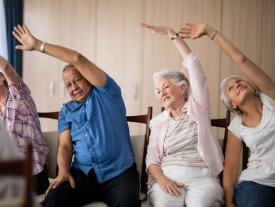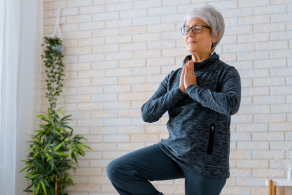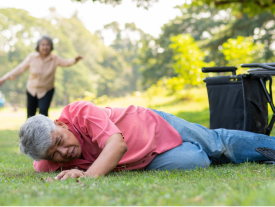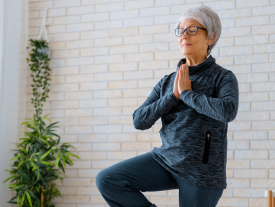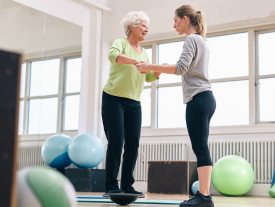What To Consider When Buying Walkers For Seniors
Selecting an appropriate walker for a senior is essential to improve their mobility, autonomy, and well-being. Walkers help seniors get around by giving them support on which they can rely and avoid stumbling or falling when they want to traverse distances.
Their various types and features make it difficult to choose the best walker. Thus, it is important to be particular in identifying the special needs and requests concerning the senior in question.
The following guide will help you choose the right walkers for seniors by explaining the features to consider before buying one.
Why Do Seniors Require a Walker?
Mobility becomes a problem in the later years of one’s life due to diseases, muscle weakness, joint pains or issues, and balance disorders.
These mobility problems can result in daily tasks becoming more strenuous and raise the chances of a fall, which in turn can cause severe complications.
Canes are vital and aid in supporting and balancing afresh since they enable the elderly to mobilize with ease and with little or no assistance.
They assist in providing equal weight support, pressure on the joints, and increased stability, which makes it easier for seniors to do their chores. Also, through leaning, the walkers’ posture can be enhanced and ensure that they do not over-exhaust themselves.
To the extent that the walker is more than a mere walking stick, it represents a part of the senior’s life, helping him or her to remain a socially active member of the community with limited physical mobility issues.
Things You Should Consider Before Buying Walkers for Seniors
Here are the things you should consider before buying a walker for seniors.
Grip Options
The grip used in a walker is another parameter that influences the comfort and functionality of the device. They come in a variety of types that are foam, gel, and ergonomic.
Foam grips help make holding easy on the palms, while gel grips allow one to have extra cushion and less fatigue on the hands. An ergonomic grip refers to grips that are made in such a way that they mimic the form of the hand and thus do not exert pressure on the wrist.
One should ensure the grip they use is comfortable and ideal for the seniors particularly if they have hand conditions such as arthritis.
Support and Stability
The walker should offer good stability so that it does not collapse or shake when the user is standing on it. It is advised to choose walkers that have large, sturdy wheels and are built up most commonly from aluminum or steel.
Also, stability can be supplemented by such characteristics as rubber tips that do not slip or wheels with brakes.
Stability also enhances the safety of the walker while helping the senior gain confidence in its usage, thus the senior will be able to navigate freely across the home without the worry of falls.
Adjustability
All types of walkers usually have legs that can be adjusted to match the height of the individual using the walker. Proper adjustment helps to ensure that the particular senior will not have to bend or stretch when using the walker because doing so will be a source of pain.
The settings of the walkers for seniors should be adjusted according to the manufacturer’s instructions on how to do it.
Since the size of the walker can be adjusted, this means that the senior does not have to go around using a walker that no longer meets his/her needs because it has been downscaled to another size since the mobility of the senior has reduced over time.
Portability
Comfort is essential for elderly patients, especially by improving aspects of the walker that may be a problem during traveling or when the walker needs to be folded. Lightweight walkers made from aluminum are slightly lighter because they can be easily lifted and moved around.
Also, many walkers, if not all, have folding capabilities, which enables them to be stored in a car trunk or closet. Some of the models even come with a carrying bag for easy transportation.
Thus, the portability of the walker ensures that the seniors are independent and can be in any place they want including visiting their children, doctors’ appointments among others.
A portable walker has usability and mobility; it is an accessory that can be taken with the patient wherever they go.
Type of Walker
In general, there is a wide classification and selection of walkers that corresponds to specific needs. Standard walkers – provide simple support; recommended for indoor walking.
Two-wheel walkers are also convenient for the patient since they lean on them but can be easily maneuvered indoors and can also be used outdoors.
Four-wheel walkers or rollators are enhanced with features such as brakes, seats, and even baskets in the form of a walker providing maximum mobility and utility.
When selecting a walker, one has to look at the lifestyle of the elder person and his or her condition.
A standard walker could therefore be ideal mainly intended for short-distance mobility and small areas while a rollator might be ideal since it can be used for longer distances and own belongings can be brought.
Weight Capacity
This is important because the walker must be able to bear the weight of the senior following a fall or while walking. Most walkers also have a recommended weight limit from the manufacturers and going over this weight limit will reduce the stability of the walker.
The weight of the user should not be near or over the limit of a walker’s capacity to support added stability and sturdiness.
There are special bariatric walkers intended for people whose weight is larger; they provide higher weight-bearing capacity but do not compromise the stability required for the user.
To some extent, focusing on the weight capability guarantees that the walker is going to be an effective and safe tool for the senior.
Final Thoughts
In choosing the right walkers for seniors, several things should be put into consideration to arrive at the right decision that will enable the elderly to move around freely without being in danger.
When considering grip types, support, the possibility of adjustments, mobility, type of grip, and load-bearing capacity, one can arrive at a decision that can significantly improve the senior’s well-being and enable them to maintain their level of autonomy.


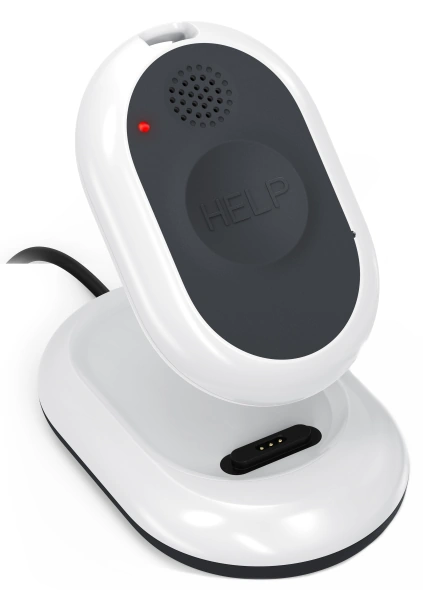
 Get Help With The Push Of A Button
Get Help With The Push Of A Button
